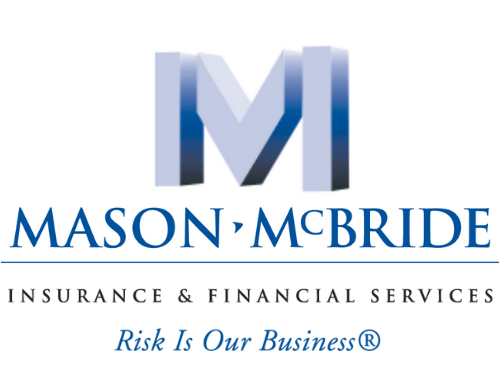Businesses with staff who handle inventory, process payments, and use digital tools may be vulnerable to internal and external criminal activity, such as fraud, theft, and employee dishonesty.
Many business owners assume that basic commercial insurance provides sufficient protection, but commercial crime insurance offers coverage for financial losses related to criminal acts. Even with strong internal controls and trusted employees, businesses may still face risks.
Commercial Crime Insurance Real-Life Example
In May 2020, our team at Mason-McBride was notified by an insurance carrier of a claim. Unfortunately, the claim involved one of our clients.
The client’s trusted Office Manager stole more than $1,000,000 from the company. The insurance carrier conducted a detailed review. The Office Manager failed to pay the business insurance premiums. The coverage had been canceled for non-payment.
Luckily, the only policy the Office Manager kept in force (paid up-to-date and active) was the commercial crime insurance policy! The carrier investigated the claim within eight months and paid our insured $1,000,000. The annual premium for the commercial crime insurance policy was in the $1,700 range.
What is a Commercial Crime Insurance Policy?
Crime insurance can help protect businesses from financial losses related to employee theft, fraud, robbery, forgery, and electronic crimes. Even with internal policies in place, risks may still exist, including the potential for employee dishonesty or external fraud.
According to Trusted Choice.com, a crime policy generally also covers losses caused by specific acts of non-employees, including:
- Theft, damage, or destruction of money, securities, and other property on the insured’s premises or elsewhere (for example, while in transit).
- Forgery or alteration of negotiable instruments, including forging the insured’s signature on business checks.
- Fraudulent manipulation of the insured’s computer system, including a hacker transferring funds to an outside account.
- Fraudulent electronic funds transfer instructions sent to the insured’s bank purporting to be from the insured.
- Receipt of counterfeit currency by the insured.
- Social engineering fraud.
These crimes can lead to significant financial losses and reputational harm.
Additionally, under the Employee Retirement Income Security Act of 1974 (ERISA), individuals responsible for handling funds in a qualified employee benefit plan must be bonded. A commercial crime policy often includes this coverage
Scenarios Typically Not Covered in a Crime Insurance Policy
The following scenarios are typically not covered by crime insurance, as detailed on TrustedChoice.com:
- Employees cause losses after the insured knows about a crime committed by that employee.
- Indirect or consequential losses of any nature, such as business interruption or loss of potential income.
- Legal expenses.
- Expenses incurred in compiling proof of loss, unless claims/investigative expense coverage is included in the policy.
- Data theft, including theft of a company’s data, trade secrets, client lists, or intellectual property.
- Property damage caused by fire.
- Fines and penalties.
- Salaries and bonuses, commissions, fees, and any associated lost income.
- Losses are based solely on inventory records.
Why Businesses Should Consider Commercial Crime Insurance
A single criminal act can cause significant financial harm to a business. Standard commercial property policies typically do not provide coverage for many types of criminal activity that could result in major financial losses.
Commercial crime insurance can help businesses mitigate the financial impact of certain crimes by providing coverage tailored to specific risks. Policies vary, so business owners should consult with an insurance professional to determine the right coverage for their needs.
Would your business be prepared for the unexpected? Now is the time to evaluate your coverage options and consider how commercial crime insurance may fit into your risk management strategy.
Take Action to Safeguard Your Business
Find out how Mason-McBride can help protect your business and request a proposal.
For helpful tips on other popular topics, check out articles on:
